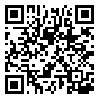BibTeX | RIS | EndNote | Medlars | ProCite | Reference Manager | RefWorks
Send citation to:
URL: http://jcpp.iut.ac.ir/article-1-2493-en.html
The storage life of mushrooms is less than the other vegetables due mainly to high water contents and a porous and thin epidermal structure. This research was aimed at obtaining a suitable compost combination and an optimal condition of maintenance for increase the storage life of button mushroom. The experimental factors consisted of two maintenance temperatures (4°C and 25°C), two types of packages (transparent and covered with foil) and four types of composts (wheat straw and chicken manure, wheat straw and horse manure, rice straw and chicken manure, rice straw and olive bagasse). Attributes such as percent of weight loss, browning area, percent of dry matter, total phenol and antioxidant capacity of stored samples were assessed 7 days after harvest in room temperature and 25 days after harvest in refrigerator temperature. Mushrooms grown in rice straw and olive bagasse compost had the highest dry matter (11.62%), when stored in room temperature. Mushrooms grown in rice straw and olive bagasse compost had the highest antioxidant capacity in both refrigerator and room temperatures when stored in the package covered with foil. According to our results, rice straw and olive bagasse compost is potent to increase the storage life of the button mushroom and merits further studies.
| Rights and permissions | |
 | This work is licensed under a Creative Commons Attribution-NonCommercial 4.0 International License. |







